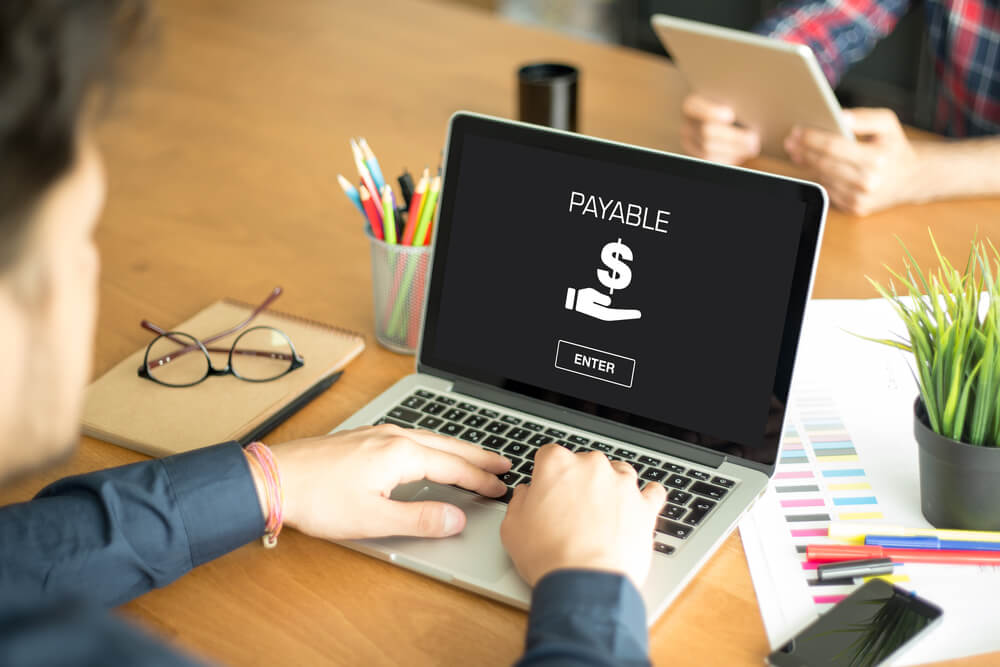There are many reasons why you may want to use a personal credit card for your business expenses. The biggest reason is convenience. You can use one card for both business and personal expenses, making tracking both types of spending easy.
It also can be a great way to accumulate rewards points and other perks that may not be available on a business card; however, some risks are involved. Depending on your business policies, there may be several reasons you shouldn’t.
In addition, it’s an inefficient accounting practice to run your business expenses through a personal card, making it hard to track business expenses, especially when tax season comes.
So should you use your personal credit card for business? Here’s everything you need to know.
Table of Contents
ToggleUsing a Personal Credit Card for Business
It’s easy to see why many small businesses prefer personal credit cards over business ones: they offer more favorable terms and rewards than traditional business cards.
For example, most major credit card issuers offer lower APRs (annual percentage rates) on their cards than on their business cards. And some don’t charge an annual fee at all (although there are exceptions). In addition, many personal cards come with generous rewards programs that can help offset the cost of travel and other expenses typical for small businesses.
However, filing small business taxes can be a nightmare if you manually track business versus personal expenses. Unless you have clear separation, you could end up in a head of trouble with the IRS.
In many companies, employees can use their personal cards for business expenses, then file for reimbursement afterward. This shouldn’t be a problem if the user is authorized and there’s a simple expense reimbursement process.
Pros and Cons of Using Personal Credit Card for Business
Many small businesses use a personal credit cards for business expenses. The perks are clear: You can earn rewards and avoid costly merchant fees. But using your personal card for business has downsides, too.
For example, the interest rate on your personal credit card will likely be higher than the rate you’d get with a small-business loan or line of credit — even if you have great credit.
In addition, you’ll probably have to pay annual fees on most cards designed for businesses. And while many cards offer valuable rewards programs and other perks, they may not cover everything you need them to cover as a business owner.
Reasons Why You Might Use a Personal Card
There are a few reasons why you might use a personal credit card instead of a company credit card.
Convenience
There are many reasons why you might use a personal credit card. The most common reason is convenience. You may find it is more convenient to use your personal credit card for business expenses than the company’s credit card.
For example, if you travel for work, you may be able to use your own rewards card on flights, hotels, and rental cars. If you have an employee expense account at work, it may be easier to use your card than to submit receipts for reimbursement later.
Benefits
Rewards are a big draw for many people, especially if they’re loyal customers of the issuing bank. Many personal cards come with rewards programs to earn points or cash back on purchases at specific merchants or categories of merchants.
For example, if you always buy groceries at Walmart and fill up your gas tank at Exxon Mobil stations, you may benefit from signing up for cards that offer rewards points on those purchases.
Many credit cards offer cash back, miles, or points that can be redeemed for travel or merchandise. The most popular rewards categories include grocery stores, gas stations, and restaurants. The rewards you earn on your card can vary depending on the issuer’s reward program.
Necessity
You may not have a corporate credit card or line of credit, either because you have been unable to apply and qualify for one or simply didn’t know how to.
The Risks of Using a Personal Credit Card for Business
While many people use their credit cards for business expenses, there are several reasons why it might not be the best idea.
Personal cards are unsecured by collateral, which means they don’t offer any protection against loss if you fall behind on payments or fail to pay off the balance in full each month.
This is a risk because it means that if you don’t pay off your balance in full every month, interest will continue to accrue on your account and make it harder for you to get out from under your debt.
Negative Impacts on Personal Finances
Using a personal credit card can have negative impacts on your personal finances.
Using your personal credit card responsibly will help maintain or improve your credit score over time, but only if you pay off the balance every month and avoid carrying a balance from month to month (which would hurt your score).
If you don’t pay off your balances immediately after making purchases, this could negatively impact your score, especially if you do it often enough.
In addition, interest rates on personal credit cards can be very high — as much as 25 percent or more in some cases — so even if you pay off your balance each month, you could end up paying hundreds of dollars in interest charges over time.
That can put a big dent in your cash flow if you don’t have enough money to cover the purchases in advance.
Finally, when using a personal credit card, it’s easy to forget that you’re spending money. It’s just a swipe of plastic; the money is gone before you know it. Studies show that people spend more when using a credit card than when paying with cash or debit cards.
Uncomfortable Dynamic With Employees
It’s easy to see why a business might want to their employees to use their personal credit cards for business. After all, they’re convenient and easy to administer.
Employees can use them for travel and entertainment expenses or reimbursements or even make purchases on behalf of the company.
But there are some severe drawbacks to using personal credit cards for business expenses. The first is privacy concerns. Personal credit cards don’t come with the same protections that business credit cards do, so there’s a risk of identity theft when someone gets hold of your personal information through an online purchase or by sharing a receipt with another colleague who may have access to your email address or social media profile page.
Another risk is that if you use a personal credit card for business expenses, your employees could be confused about who owns what. It’s hard enough for employees to understand how their salaries work or what benefits are available through their employer. Adding another layer of complexity could make them make mistakes or feel like they aren’t being treated fairly by their employer.
Tracking Business Expenses Is Harder
If you use your personal credit card for business expenses, it can be hard to keep track of all the charges. This is especially true if you don’t think about this ahead and set up a separate account or card just for business purposes.
If you don’t have a system in place, your personal credit card statements may look like a jumbled mess of personal and business expenses. You might have trouble figuring out which charges are legitimate business expenses and which ones were simply personal expenses paid with the wrong card.
In some cases, you may even find that some business-related charges haven’t been reimbursed, leading to confusion about what was paid for what purpose.
A better solution is to get an additional card specifically for business use so that there’s no confusion about which payments are related to which activities.
Preparing Your Taxes Is More Difficult
If you use your personal credit card regularly for business purchases and then try to claim them as deductions on your taxes, it will make tax preparation more difficult — especially if you don’t keep good records.
Businesses are entitled to deduct certain expenses from their taxable income. Using your personal credit card for business expenses may not qualify for these tax deductions. For example, if your company buys office supplies and pays with your personal credit card, you aren’t likely to be able to write off those purchases on your taxes.
However, if the company pays with a corporate card and files an expense report with the bank, you could receive a reimbursement check and then use that money to cover those expenses.
Your Legal Protections Are Weaker
One of the most important things to consider when considering using your personal credit card for business is that your legal protections are weaker. If you run a small business, you may feel more comfortable using a credit card issued by your bank or credit union than one from a third party.
If something goes wrong with a third-party card — if there’s a dispute over charges,
or if someone steals your identity and racks up charges on your account — it’s up to you to resolve the problem. With a card issued by your bank, you’ll have more protection, including the right to dispute any fraudulent charges and get them removed from your bill.
Obtaining Financing Is Harder
Businesses often struggle to get bank financing because banks want to see a good track record of successful business ventures before they lend money.
Banks also want to know that they’ll be able to collect on the debt in case things go south. If you’re using your personal credit card for business, it may be harder to obtain financing due to these concerns.
Advantages of Using a Business Credit Card
Business credit cards are one of the best ways to build business credit. If you’re an entrepreneur looking to start a new business, or if you’ve already got a company up and running and want to expand your business credit line, a business credit card can help you do that.
A business credit card can be a great option if you’re looking for a way to earn rewards, manage expenses, and track spending. The main advantage of using a business credit card is that it allows you to separate personal and business spending.
If you want to make purchases on behalf of your company, it’s easier to do so by charging them on a single card rather than using multiple cards or cash.
These cards offer more benefits than personal credit cards, such as purchase protection and extended warranties. They also tend to offer better interest rates and higher rewards rates than personal cards.
Business credit cards are usually designed to help small businesses manage their finances and keep track of expenses. You may qualify for one of these cards if you’re a sole proprietor or partner in a small business.
Build Business Credit
The main reason business owners use these types of cards is because they help them build their personal credit history.
Businesses often need to borrow money for various reasons, such as purchasing inventory or equipment, and creditors want to see that the company has successfully paid off its debts in the past.
A good track record with a business credit card can help show potential lenders that your company is reliable and responsible in managing its finances.
IRS Audits
The most important advantage of using a business credit card is that it can help reduce your risk of an IRS audit. According to IRS rules, businesses must keep receipts for all purchases made on behalf of their companies, including travel expenses and office supplies purchased with company funds.
These receipts are used when filing taxes each year so that the IRS knows what expenses were paid for by the company and which ones were personal expenses paid for out-of-pocket by employees themselves.
If an employee uses a personal credit card instead, they may face trouble during an audit when asked about specific purchases made on behalf of their company. Using a business credit card helps you keep track of your expenses and income more efficiently.
When it comes time to do your taxes each year, it’s much easier to add up all the charges and subtract them from your income when they’re all in one place. This is especially helpful if you’re audited by the IRS. If they ask for receipts for specific items, they’ll be on your statement, so it’s easy to pull them up and print them out if necessary.
Improved Security
Business credit cards are safer than personal cards. Business credit card issuers are subject to stricter security requirements than personal credit cards.
The business card issuer must comply with the Payment Card Industry Data Security Standard (PCI DSS). The PCI DSS is a set of information security standards developed by major payment card companies.
Credit card companies have prioritized security and are constantly improving their systems to protect consumers’ information. That means you can feel confident that your customer’s personal information is secure when they pay with their credit cards.
Low Costs
One of the most significant advantages of using a business credit card is that it helps lower costs. Businesses can use these cards to pay for travel expenses, office supplies or other costs that would otherwise be paid by writing checks or using personal credit cards.
This prevents businesses from having to pay fees for each charge they make. It also helps them avoid incurring interest charges on those items if they have outstanding balances that aren’t paid off immediately.
You might also be able to take advantage of an introductory rate that’s only available for a limited time. This can help you save money on interest payments if you use the card responsibly.
Cash Back Incentives
Many cards offer cash back incentives when you use them for certain purchases. If you want to earn cash back on your purchases, check the terms and conditions of your card to see what kind of rewards it offers.
You may also qualify for additional rewards if you’re a frequent flyer or belong to specific organizations.
Partnered Promotions
Business cards may offer more rewards than personal cards, especially if they’re tied to loyalty programs like Delta SkyMiles or Hilton Honors.
Some business cards also work with other companies rewards programs so that you could earn points from multiple sources with one purchase. This can be particularly useful if you have a small business because discounts and services are often offered exclusively to small businesses through partners such as Visa and American Express.
Solve Your Business Credit Troubles Now
Many small businesses use personal credit cards. This practice has advantages and disadvantages, and it’s essential to understand them before deciding.
The advantage is obvious – if you use a personal credit card and pay it off in full each month, you’ll get rewards points or cash back. You can also earn airline miles, free hotel nights, and other perks from your business travel.
This can add up to hundreds or even thousands of dollars each year for a small business owner who travels frequently.
But there are also some disadvantages to using a personal credit card for business expenses. For one thing, if you carry balances on your accounts, you may risk damaging your credit scores if your business stops paying its bills on time (or at all).
In addition, if you’re not careful about tracking expenses, it’s easy to lose track of how much money you’ve spent on behalf of the company — which could lead to trouble with the IRS down the road if they discover that you’ve been using non-deductible personal expenses as tax write-offs.




No comment yet, add your voice below!